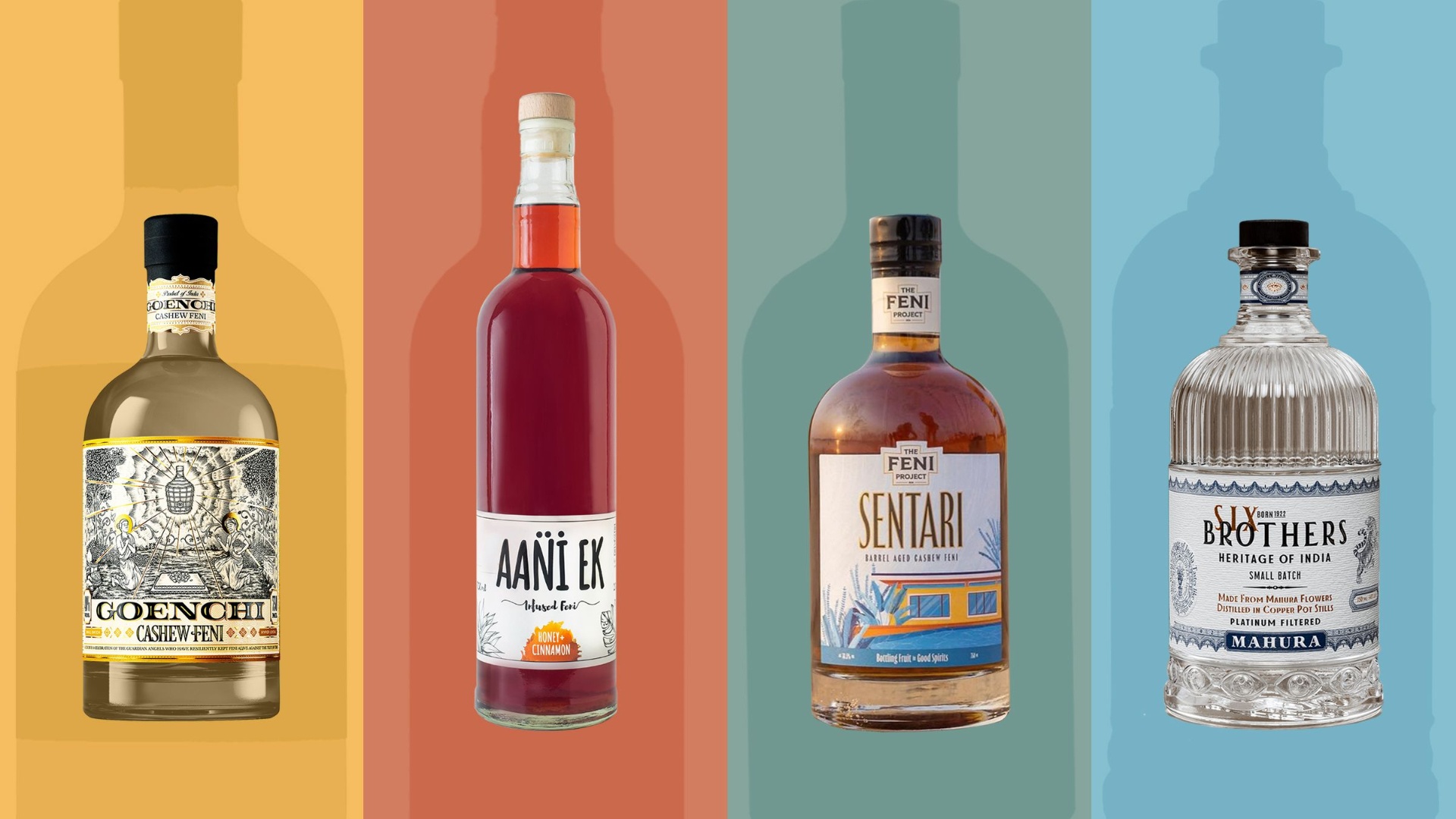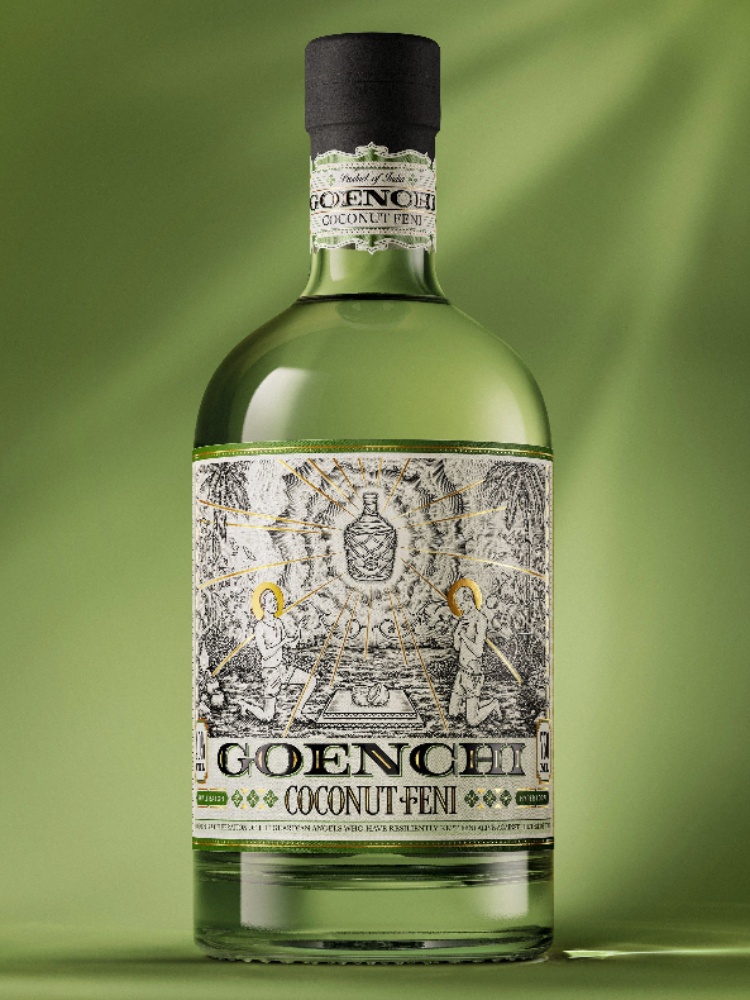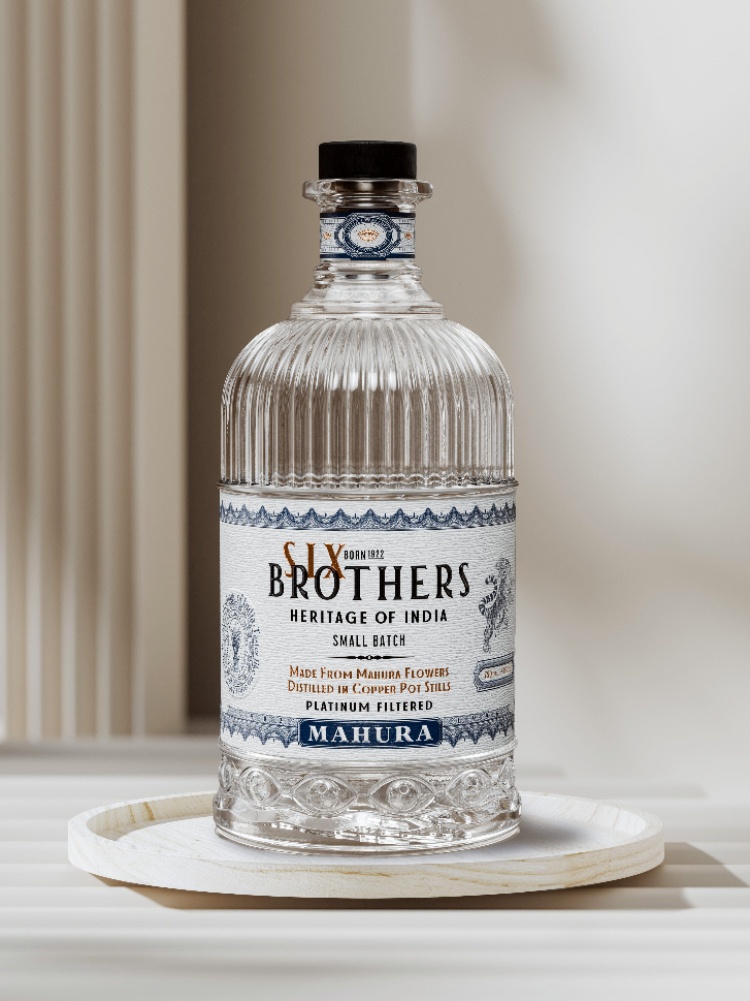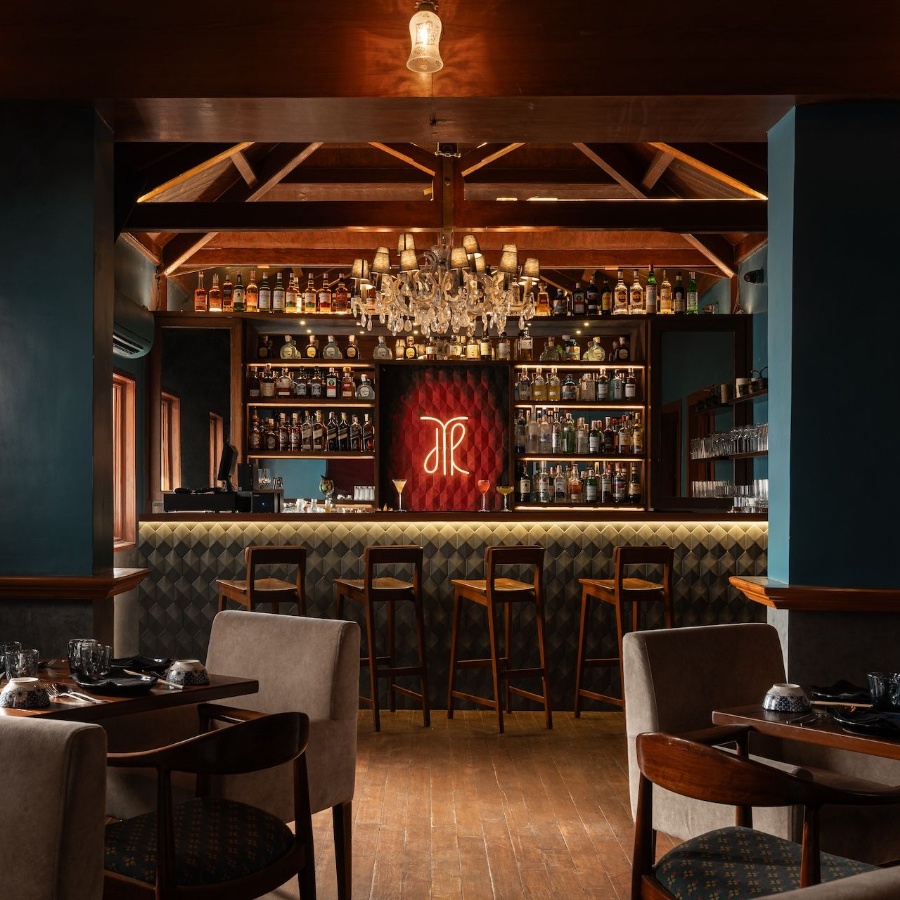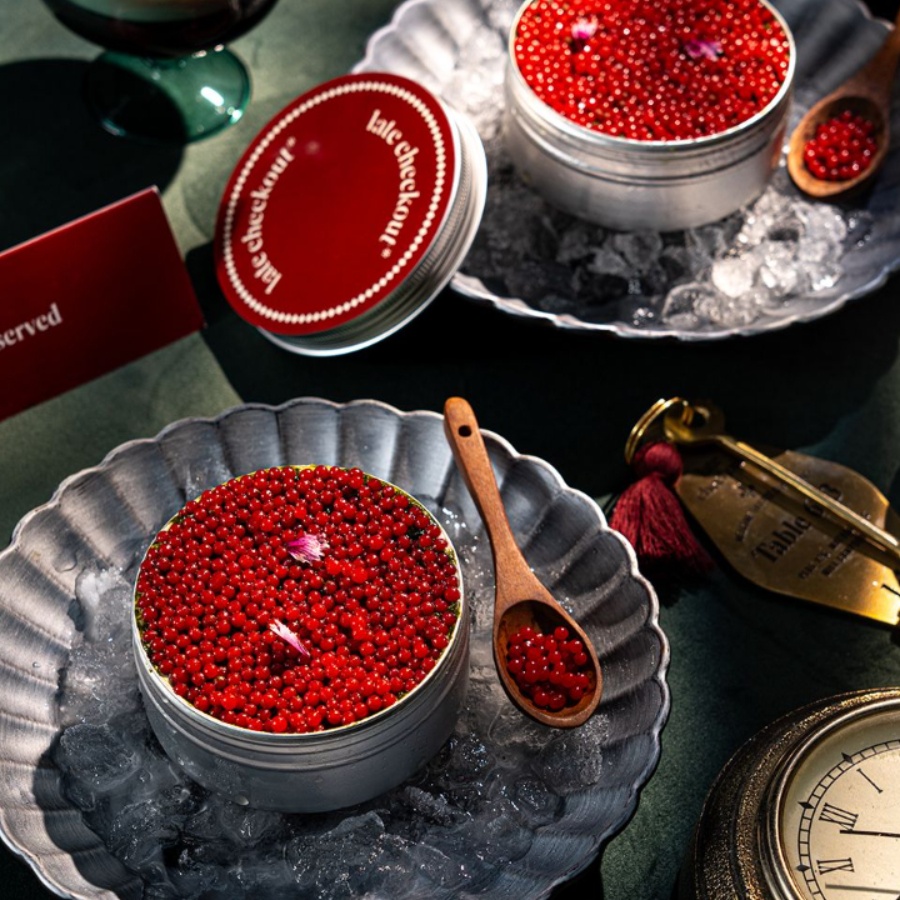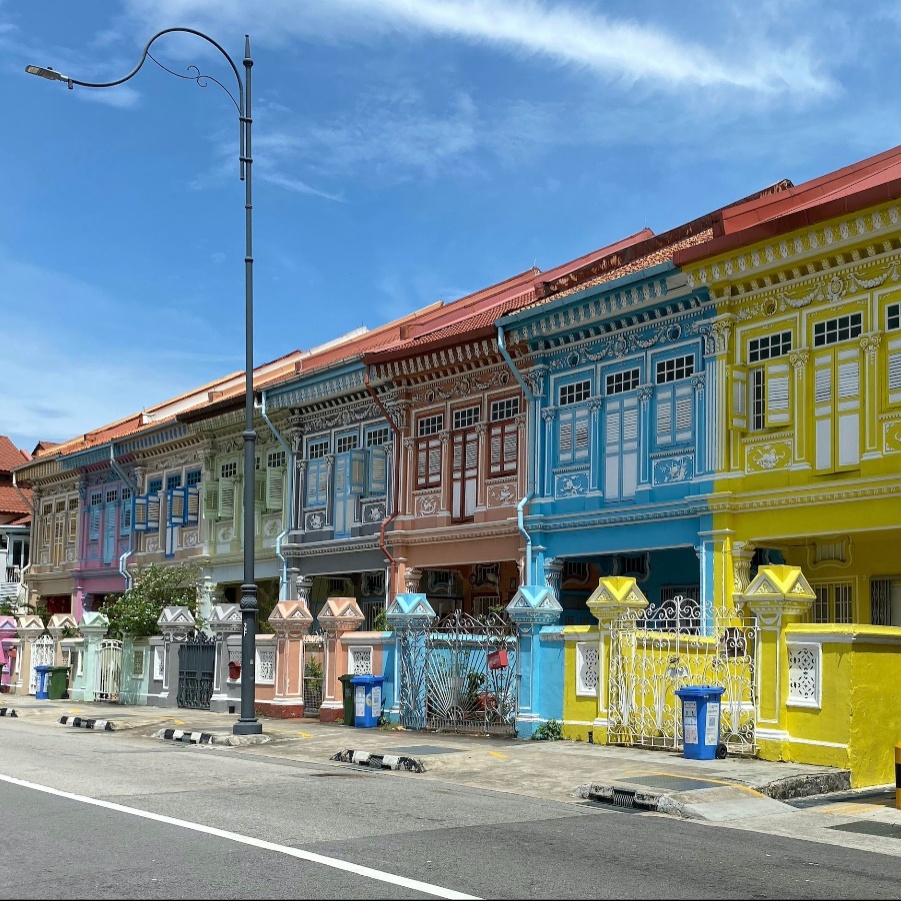Two of India’s OG tipples, feni and mahua, are rewriting the copy book, and they’re doing it with the suaveness associated with the cigar-smoking, whiskey-swilling wordsmiths of the Mad Men era. Once knocked back in dusty roadside bars or under starlit skies, these bold and unapologetic indigenous spirits are now dressing up and strutting into high-end lounges, making themselves heard over the craft beers, small-batch gins, and husk-smoked whiskeys.
From feni brands such as Cazulo, Aani Ek, Goenchi, Sentari and Tinto, to mahua brands such as Desmondji and Six Brothers Mahura, high-quality heritage alcohol is on the rise. “Today’s consumers crave authenticity, and India’s rich distilling traditions offer exactly that,” says Rupi Chinoy, director of South Seas Distilleries, which recently launched Six Brothers Mahura. “The rise of luxury homegrown brands, cutting-edge production, innovation, and a growing global appreciation for indigenous spirits has played a role. But more than anything, it’s pride.”
Mahua is distilled from the flowers of the eponymous tree, feni can be made from either cashew or coconut. While both mahua and feni have long histories going back centuries, the journey from the theka to the high table has been short—less than 15 years. The front-runners, like Desmond Nazareth of Desmondji fame and Cazulo’s Hansel Vaz, spent a disproportionate amount of time chipping away at the legal frameworks that make it almost impossible to sell local liquor in a state other than where it originated. It’s a battle that’s far from won, but their efforts (including, but not restricted to, pushing for changes in excise laws at the state level) set down a template that allowed for more experimentation, paving the way for a mini-army of passionate alco-preneurs chasing a heady mix of authenticity, self-expression, and pride.
“I imagine mahua as India’s national drink,” says Desmond Nazareth, founder of Desmondji spirits. “Most countries have a signature alcohol—Mexico has tequila, the US has bourbon. In India, I believe mahua deserves that kind of national heritage status.” Adds Chinoy, “Mahura to us is a story of resilience, heritage, and deep cultural roots.” Mahua is unique in that it’s distilled from a flower (most alcohol is distilled from fruit or grain). This makes it a uniquely native drink, deeply intertwined with tribal traditions and local ecosystems.
Culture, pride, tradition…these are recurring themes when it comes to both mahua and feni. But there’s one key difference between mahua and feni. With mahua, the goal is to introduce a little-known spirit to the world. With feni, it’s not just about premium positioning and better quality—it’s about rewriting its reputation. “People either love it or hate it. There’s no middle ground with feni,” says Clement DeSylva, co-founder of Aani Ek (which literally translates to ‘another one’).
